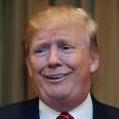Donald Trump's business dealings with other countries while he was president have been a subject of significant scrutiny and raised concerns about potential conflicts of interest and violations of the Emoluments Clause.
Key Points:
Refusal to Divest: Unlike previous presidents who have typically placed their business interests in a blind trust, Trump did not divest from his extensive business holdings, the Trump Organization, while in office.
Foreign Government Payments: Reports indicate that Trump's businesses received millions of dollars from foreign governments during his presidency, leading to allegations of violating the Emoluments Clause, which prohibits the president from accepting gifts or emoluments from foreign governments without Congressional consent.
Congressional Report Findings: A House Oversight Committee report revealed that Trump's businesses received at least $7.8 million from officials and governments of 20 countries, with significant payments from China, Saudi Arabia, and Qatar.
Lack of Divestment for Second Term: In anticipation of a potential second term, the Trump Organization revised its ethics policy, allowing for a broader range of transactions with foreign partners and counterparties, including foreign governments. This raises further concerns about potential conflicts of interest.
Lawsuits and Legal Challenges: Several lawsuits were filed against Trump regarding his business dealings and potential Emoluments Clause violations. However, these lawsuits were ultimately dismissed as moot by the Supreme Court after he left office, meaning there was no definitive judicial ruling on the matter.
Delayed Disclosure of Foreign Trademarks: Trump waited until after leaving office to disclose hundreds of foreign trademarks he owns, including a significant number in China. This delay raised concerns about the lack of transparency regarding his foreign asset holdings during his presidency.
Examples of Potential Conflicts: Examples include the Trump Organization's trademarks granted by foreign governments, such as China, and real estate projects with connections to foreign governments, particularly in the Middle East.







